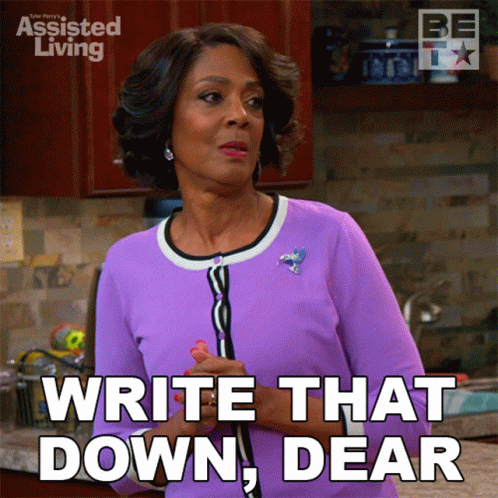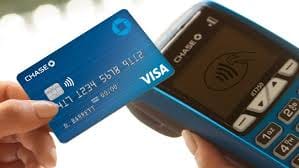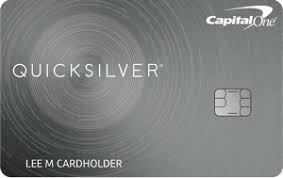How to Understand Credit Cards When You Grew Up Cash Only
Our experts explain credit cards for all of you who were raised in "cash-only" homes. Let's talk the basics and the key topics of credit cards to know.

Why Trust Us?: Salt & Pepper Finance is an independent expert publication– we don’t bend to affiliates like those other blogs. Our experience and suggestions are our own and not fueled by anyone else (or their money). Plus, we’re people– we have been in debt and made it to the other side. We grew up where money was a taboo topic and we want to help answer the questions that are real, but not commonly discussed. For more info read our About Us page. If you’d like to help our cause please consider joining our free newsletter.
Ah, credit cards. Those magical pieces of plastic (or metal, for the fancy ones) that let you buy now and pay... eventually. If you, like me, grew up in a cash-only household, the concept of credit cards may seem as foreign as a diet without carbs.
Today, our experts will dive into the world of credit cards, translating that financial jargon into plain English (like your family may have not done), with a sprinkle of humor and a ton of actionable advice.
A Brief History of Credit Cards (Or How We Learned to Stop Worrying and Love Debt)
Credit cards were invented for people who realized carrying around a chicken to barter for goods and services was getting old. Just kidding (kind of).
They actually became popular as a way to facilitate easier spending, all while building a history of said spending to prove you're good at it. It's like your financial resume, but instead of "proficient in Microsoft Office," it's "can pay back money on time."
Understanding the Basics (What the Heck is APR Anyway?)
Before we dive into the nitty-gritty, let's cover some basics:
- Credit Limit: The maximum amount you can borrow. Think of it as your financial leash.
- APR (Annual Percentage Rate): The interest rate for a whole year. It's like the fee for the privilege of borrowing money.
- Minimum Payment: The least amount you can pay back each month without being considered a financial rebel.
- Balance: How much you owe. Ideally, this number is less than your credit limit.
Why Use a Credit Card? (Besides Feeling Fancy at Checkout)
For me, growing up using a credit card was more of an emergency backup plan than a strategic financial tool. But since you don't know what you don’t know–here’s what is the truth about credit cards and why using them is a must.
- Build Credit History: Important when you want to prove you're trustworthy (like buying a car or a house).
- Rewards: Earn points, miles, or cash back. It's like getting a gold star, but you can exchange it for stuff.
- Protection: Most cards offer fraud protection. It's like a financial bodyguard for your purchases. Seriously, a debit card is your money- there's no insurance when your money is stolen, but for someone else's money (i.e. credit cards) there is 0% liability protection.

Choosing Your First Credit Card
The good news – there are hundreds of credit cards to choose from and the incentives are endless. As a starter, I would highly suggest a card through somewhere you already bank. Half the time, you can find out if you’re preapproved without feeling like you have to risk your credit score.
But if you’re a beginner, here’s what to look for:
- Low APR: Look for a card with a low-interest rate. Now you won't find a card that has endless 0% APR but many will offer a term where there is 0% APR. These are your winners.
- No Annual Fee: Why pay to spend your own money? That's like buying a ticket to your concert. Silly. No, if you’re just starting out go for the no-annual fee cards.
- Rewards Program: Choose a program that matches your lifestyle. If you travel a lot, get a card that earns miles. If you're a homebody, look for cashback on groceries. But if you don't care to go in on the details, go for a flat-rate cash-back credit card. Something like “earn 1.5% cash back on all purchases”
How to Use a Credit Card Wisely (Because Bankruptcy Isn't as Fun as It Sounds)
Ok, credit cards are not monopoly money, there are no “get out of jail free” cards. You will need to exercise some restraint and responsibility.
- Pay Your Balance in Full: Treat it like a strict diet. No cheating, or you'll regret it later.
- Don't Max It Out: Keep your spending below 30% of your credit limit.
- Check Your Statements: Look for mistakes or fraud.
- Understand the Terms: Know what you're signing up for including how interest is calculated, when your due date is, and all of your exclusions.

Avoiding Common Pitfalls (The Financial Equivalent of Stepping on Legos)
Here are the three big no-nos to keep an eye out for:
- Late Payments: It hurts your credit score and your wallet (thanks, late fees).
- Only Making Minimum Payments: This is how you stay in debt forever. Like a never-ending game of financial tag.
- Falling for Rewards Traps: Don't spend just to get rewards.
What If I Mess Up? (Because Everyone Does)
- Contact Your Credit Card Company: Explain your situation. Sometimes they can offer relief options.
- Consider a Balance Transfer: If your APR is high, transferring the balance to a card with a lower APR can save you money.
- Get Professional Help: If you're in over your head, talk to a financial advisor. It's like asking for directions when you're lost.
Looking for More Personal Finance Insight?
For Budgeting: Look at the 2024 Budget Binder.
For Savings: Check out how to Build and Emergency Fund.
Managing Debt: Here is why you still owe so much on your car.




Comments ()